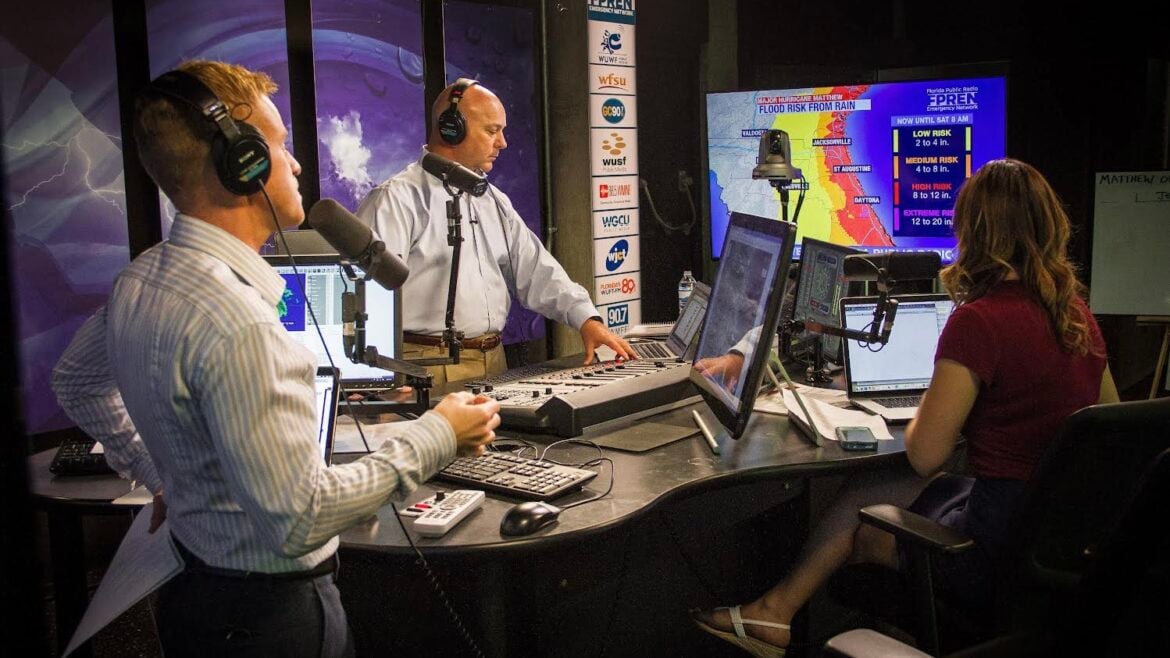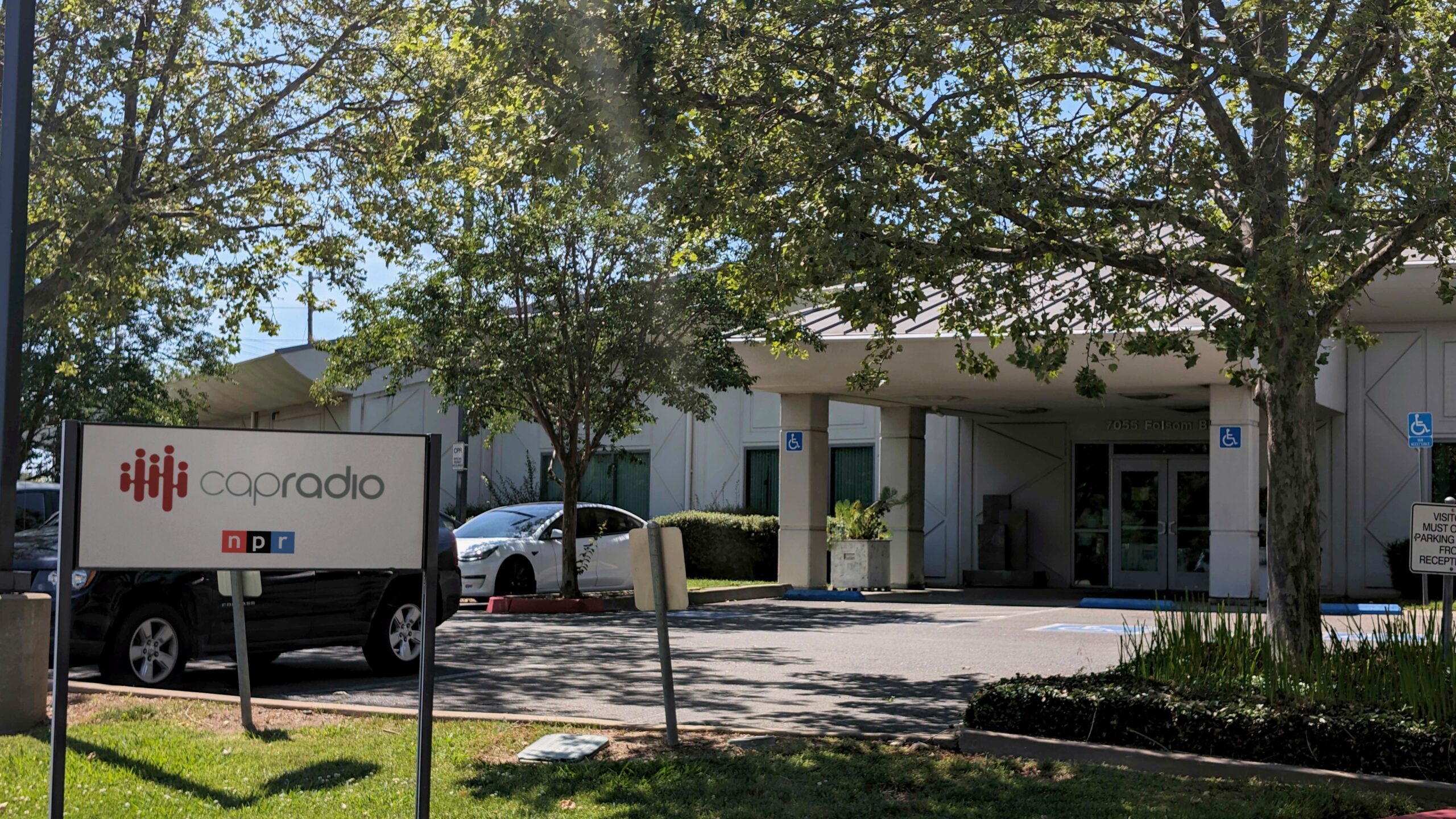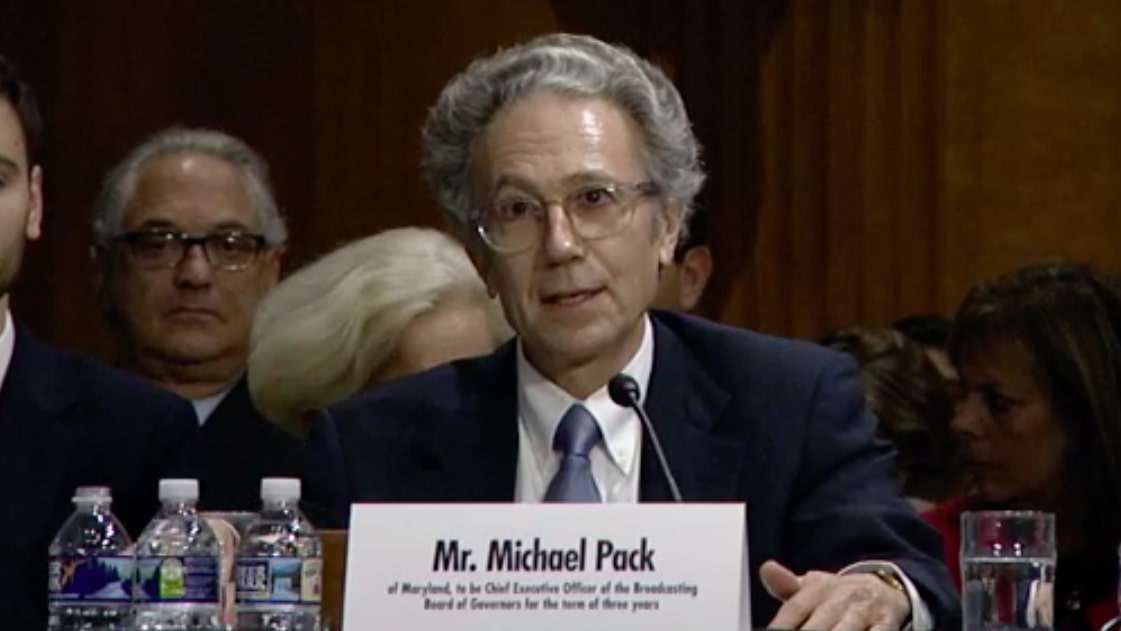Gov. Ron DeSantis vetoes funding to Florida public broadcasters

FPREN
WUFT Executive Director Randy Wright, center, works in the Florida Public Radio Emergency Network’s StormCenter studio with meteorologists Jeff Huffman, left, and Deborah Alberto in 2016, during live coverage of Hurricane Matthew.
Florida Gov. Ron DeSantis vetoed nearly $6 million in funding to the state’s public broadcasters Monday.
The legislature passed a budget last month that provided funding of $370,400 for each public television station and $100,000 for each public radio station. The total funding cut was $5,744,811.
The governor kept in place funding for the Florida Public Radio Emergency Network and the Florida Channel.
Randall Wright, executive director of WUFT in Gainesville and founder of the Florida Public Radio Emergency Network, said he was surprised by the veto since the state had previously provided “long-standing” support for public broadcasting, he told Current in an email.
“And, while we appreciate the ongoing support for the Florida Public Radio Emergency Network, which was fully funded and not vetoed, the emergency alerting work done by FPREN airs on all of our partner stations from Pensacola to Key West and the loss of these operational funds does undermine our public safety work,” he said. “Florida has been an extraordinary and unique story of public media’s partnership with public safety and emergency management, and it will continue to be, but this was a surprise based on the high level of partnership we continue to enjoy with the local, county and state public safety agencies.”
The broadcasters that stand to see the biggest impact from the funding cut are small TV stations. WEFS-TV in Cocoa, for instance, receives about 35% of its revenue from state funding, according to its 2024 financial statement.
“We are extremely disappointed by the Governor’s decision to veto funding for public media,” Florida Public Media said in a statement.
The organization said that it plans “to have a dialogue with the Governor’s office and the Florida Department of Education to determine if there is a way to address the Governor’s concerns, while ensuring Floridians can continue to have access to the programming they turn to for information about their state government, and the resources they depend on during a storm.”
This article has been updated with the statement from Florida Public Media.








